Bradford, 30 Safar 1436/23 December 2014 (MINA) – Over the last decade there has been a surge in the restoration of Jewish synagogues by Muslims. Many of these refurbishments are taking place in countries that once boasted large Jewish communities. But today many of these countries are virtually Judenrein as the majority of their Jewish citizens fled the country after experiencing large scale persecution following the creation of the State of Israel.
Bradford Reform Synagogue, Bradford, UK
In 2012 the trustees of Bradford’s last synagogue faced a tough choice. There was serious damage to the building and there was no way the modest subscriptions paid by the synagogue’s 45 members could cover the costs.
Also Read: Türkiye Urges Israel to Match Hamas’ Constructive Steps Toward Permanent Gaza Ceasefire
But after an incredible intervention from Bradford’s Muslim community the synagogue was saved. Upon hearing of the plight of the synagogue the secretary of a nearby mosque and two successful Muslim entrepreneurs were able to raise over $200,000 by both donating out of their own pocket and by helping to structure a bid for government funding.
Not only did one of Britain’s most beautiful Moorish revival synagogues survive, but these Jewish and Muslim spiritual descendants of Abraham AS did what family members are supposed to do – they put aside their differences and helped each other in a time of need.
El Ghriba, Djerba, Tunisia
Also Read: HRF Files Legal Complaint in Cyprus Against Israeli Soldier
In March this year the religious affairs ministry of Tunisia, a Muslim majority country with a tiny Jewish presence, announced that the Tunisian government had allocated funds to maintain Africa’s oldest synagogue, located on the Tunisian island of Djerba.
The synagogue regularly receives thousands of Jews who make an annual pilgrimage to this site, but foreign visits fell after the 2002 terror attack on Djerba, when an al-Qaeda suicide bomber drove a fuel truck into this very synagogue killing 16 European tourists and five Tunisians. They then fell further following the 2011 revolution.
But with this new investment and a stabling political climate, the Tunisian government hopes that the Jewish tourists will once again return to Tunisia on mass. But the nations relationship with its Jewish citizens and tourism doesn’t end there, this year the Prime Minister of Tunisia nominated a kippah wearing Jewish Tunisian as the Minister of Tourism!
Le Kef Synagogue, Tunisia
Also Read: Tensions with Lebanon’s Hezbollah, Israel to Recruit 12,000 Additional Soldiers
Kef is a rural Tunisian town where Jews should be as common as eskimos, The last Jew left town in 1984. But 10 years later with not a Jew in sight, the then Muslim president of Tunisia Zine al-Abidine Ben Ali donated $50,000 to restore the synagogue. Today the synagogue, known simply as the Ghribet el Yahood (sanctuary of the Jews), doesn’t have one Jewish member, yet it receives dozens of tourists each week curious to see the abandoned synagogue that is loving cared for Muslims.
The Turkish synagogue restoration project
What can only be described as the revival of a nations abandoned synagogues is currently taking place in Turkey. Dozens of buildings are being restored, from derelict ruins that were abandoned decades ago, to active synagogues that desperately needed refurbishing.
Also Read: Hamas: Israeli President’s Africa Visit an Attempt to Undermine Support for Palestine
Yet all of this is in large paid for, and managed by, the Turkish government who want the world to see the Muslim nation as a country that protects and supports its religious minorities.
Erdine Synagogue, Turkey
Bikur Holim, Izmir, Turkey
Also Read: Indonesian Language Program Officially Opened at Al-Azhar University
Sinyora Synagogue, Izmir, Turkey
Algazi Synagogue, Izmir, Turkey
Also Read: Indonesia to Send Language Teachers to Al-Azhar University
Gaziantep Synagogue, Turkey
Shalom Synagogue, Izmir, Turkey
Also Read: Türkiye Issues Arrest Warrant for Netanyahu Over Gaza ‘Genocide’
Beit Hillel, Izmir, Turkey
Maimonides Synagogue, Egypt
Also Read: Kazakhstan Confirms Joining Abraham Accords
Despite have less than 40 Jews in Egypt, the Egyptian authorities spent over year and a half restoring the Maimonides Synagogue in Cairo. The 19th-century synagogue and adjacent yeshiva, which stand on the site where Rabbi Moses ben Maimon, the Rambam, worked and worshiped more than 800 years ago, was restored by the Egyptian Supreme Council of Antiquities to the cost of around $2 million.
The restoration of the synagogue is part of a plan by the Supreme Council of Antiquities to restore all the major religious sites in Egypt, including 10 synagogues.
Nahon Synagogue, Morocco
Also Read: YouTuber Ms. Rachel Wears Gaza Children’s Artwork Dress at Glamour Magazine Awards
This 17th century synagogue in Tangier, Morocco was restored in the early 90’s.
Slat al Fassiyine, Morocco
Also Read: White House: President Trump to Meet Syrian President
Although only part funded by the state, this Moroccan synagogue’s restoration was not only approved by the King of Morocco, but he also attended the grand reopening ceremony along with the Prime Minister. While in attendance the King declared all synagogues throughout Morocco would be restored.
Speaking on the King’s behalf, Prime Minister Abdelilah Benkirane said that the synagogue’s restoration bore “eloquent testimony to the spiritual wealth and diversity of the Kingdom of Morocco and its heritage.”
“The secular traditions of Moroccan civilization drew their essence from the fact that Moroccans are deeply ingrained with the values of coexistence, tolerance and harmony between the different components of the nation,”.
Maghen Avraham Synagogue, Beirut, Lebanon
It is estimated that there are less than 30 Jews in Lebanon, but despite these tiny numbers Beirut’s Magen Avraham Synagogue underwent extensive and expensive renovations after it’s structure was destroyed by Israeli shelling during the Lebanon Wars.
The synagogue is the Lebanese capital’s only synagogue. Located in Beirut’s former Jewish district, Wadi Abu Jamil. But with only a few dozen Jews living in the tiny country, today there is hardly a soul left to worship in the rebuilt synagogue.
Franji Synagogue, Damascus, Syria
The Franji synagogue is possibly the most politically motivated restorations we have featured. Today only 17 Jews remain in Syria as most fled the nation following the large scale persecution that took place after that state of Israel was created.
With barely a Jew left to worship within this beautiful synagogue, the Assad regime invested a lot of time and money restoring this beautiful house of prayer. It is unlikely that this was to attract Jewish tourism as was the case with many other restorations – as to the regimes intentions, we’ll leave you to decide.(T/R04/P3)
Mi’raj Islamic News Agency (MINA)
Source: Judaism-Islam.net





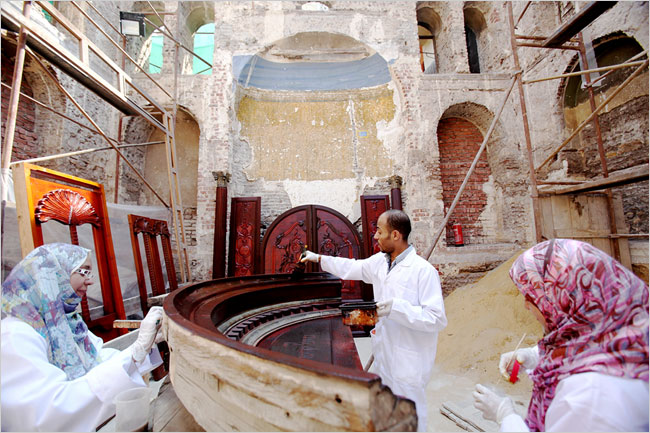





















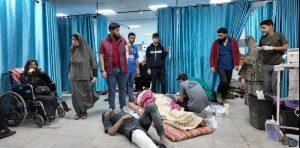
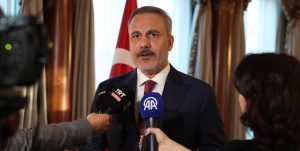
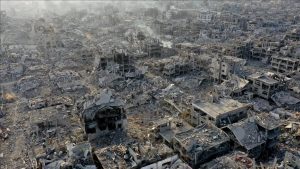


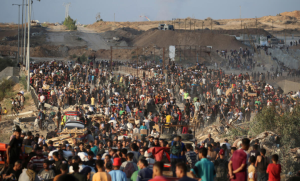















 Mina Indonesia
Mina Indonesia Mina Arabic
Mina Arabic